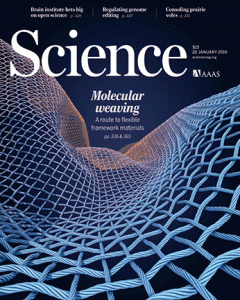
In December of last year, Chris Surridge found himself in a situation not uncommon to journal editors: A researcher who had been found to have committed misconduct had submitted a manuscript to the journal Surridge edits, Nature Plants. Retraction Watch readers may recall the name of the corresponding author, Patrice Dunoyer, who has had five papers retracted and five corrected following an investigation into work out of the Olivier Voinnet lab.
So what to do? The journal accepted the paper in May, and published it in June, along with a thoughtful editorial likening prizes and cheating in science to those phenomena in sports. The editors, according to the editorial, “treated the study we received as we would any other.” We asked Surridge to answer a few questions about the episode.
Retraction Watch (RW): Was there some internal debate about whether to consider publishing a paper by Dr. Dunoyer? Did you personally hesitate? Why or why not? Continue reading What should a journal do when a scientist who committed misconduct submits a new paper?







